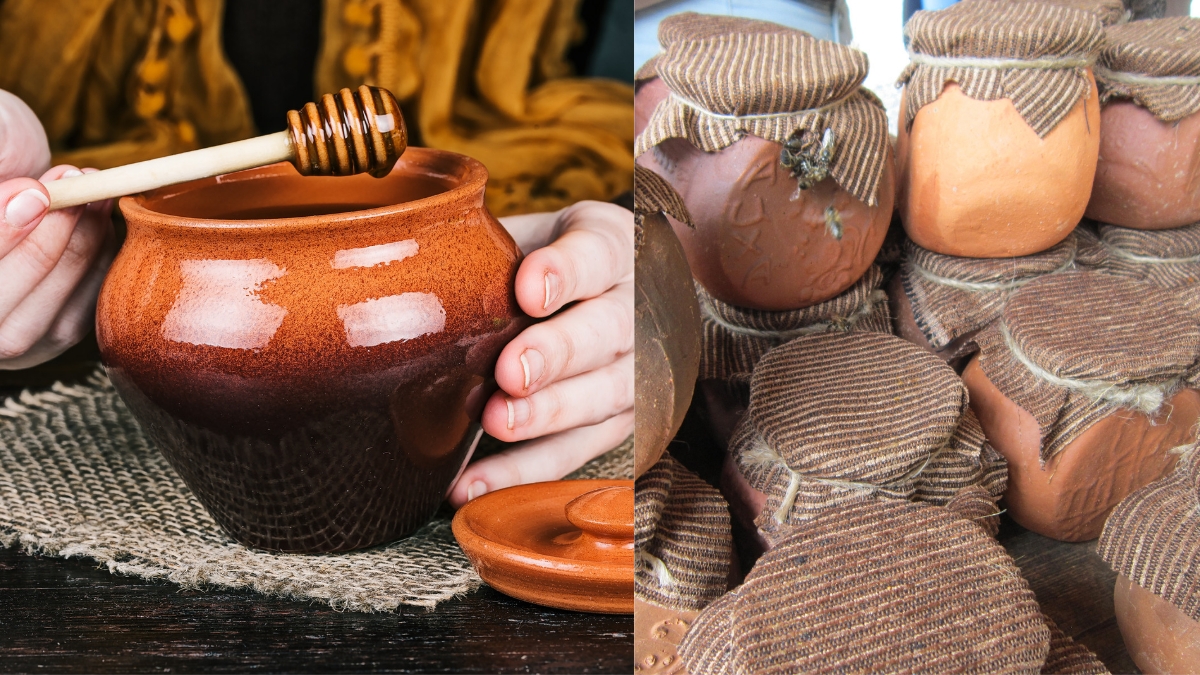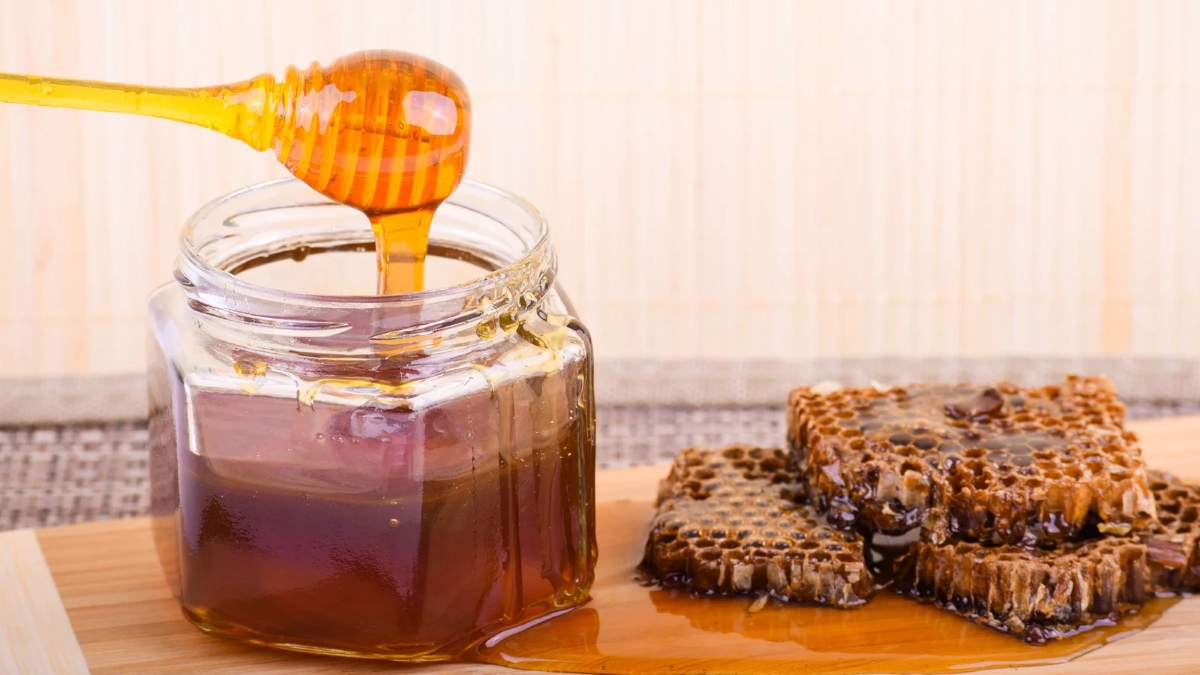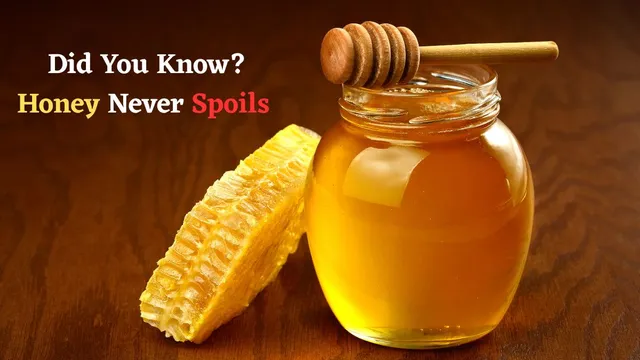- By Aditi Priya Singh
- Sun, 31 Aug 2025 08:19 PM (IST)
- Source:JND
Why Honey Never Spoils: In our daily lives, we come across many foods that have a limited shelf life. Over time, the majority of the things kept in our kitchens degrade, lose their flavour, or become dangerous to consume. Every product, including packaged goods and fresh fruits, has an expiration date to remind us to eat it before it goes bad. But have you ever pondered whether this rule might not apply to a naturally occurring food? Researchers and explorers have found some foods that are safe to consume for centuries, and their special qualities have left people in awe.
These discoveries frequently give us significant information into how nature can preserve itself without the use of artificial means. One of the most amazing discoveries made by archaeologists was a food item that had survived thousands of years in perfect condition. In addition to surprising researchers, this discovery provided insight into how ancient societies used time-tested natural ingredients. It begs the question, what is so remarkable about this food?
When And Who Discovered 3000 Year Old Honey?

3000 year old honey (Image: Canva)
In 1922, the famous archaeologist Howard Carter found Jars of honey in the tomb of Pharaoh Tutankhamun in Egypt's Valley of the Kings. Interestingly, after three thousand years, this honey, which had been sealed in immaculate clay pots, had remained perfectly preserved and was still regarded as edible.
This discovery is among the most surprising in archaeological food preservation because it highlights honey's exceptional natural properties that prevent spoilage. Ancient Egyptians placed honey in tombs both as an offering and as sustenance for the afterlife, yet its enduring freshness testifies to its powerful natural chemistry.
ALSO READ: Honey Water vs Lemon Water: Which Morning Drink Helps Boost Weight Loss More?
Why Does Honey Not Spoil?
Honey has unique properties that prevent bacteria and microorganisms from growing in it:
Low water content: Honey is hygroscopic, meaning it has very little moisture, making it hard for bacteria to survive.
Acidity:Its natural pH is between 3.2 and 4.5, which creates an acidic environment that inhibits microbial growth.
Natural hydrogen peroxide: Bees add an enzyme called glucose oxidase, producing small amounts of hydrogen peroxide, which acts as a natural preservative.
Historical Evidence Of Using Honey
Ancient Egypt (Around 2400 BCE)
Honey was used in offerings to gods, as a sweetener, and for embalming in mummification. Jars of honey were also placed in royal tombs, like that of Pharaoh Tutankhamun.
Mesopotamia (2000 BCE)
Clay tablets show honey being used in medicinal recipes and healing ointments for wounds and infections.
Ancient Greece (8th Century BCE)
Greeks used honey in food, religious rituals, and medicine. Hippocrates prescribed honey for throat infections and digestive issues.
Indian Ayurveda (Over 3000 Years Old)
Honey (Madhu) has been an important ingredient in Ayurvedic medicine, used for boosting immunity, improving digestion, and treating skin problems.
Ancient China (Before 2000 BCE)
Honey was used both as a natural preservative and in traditional Chinese medicine to balance energy (Qi) and treat coughs.
ALSO READ: Why Honey Is The Monsoon Remedy Your Body Has Been Waiting For; Know From Expert
10 Common Uses of Honey Nowadays

Modern use of honey (Image: Canva)
Even today, honey is widely used for:
1. Natural Sweetener – Used as a healthy alternative to refined sugar in tea, coffee, and recipes.
2. Boosting Immunity – Consumed daily to strengthen the body’s defense against infections.
3. Cough and Cold Relief– Mixed with warm water or herbal teas to soothe sore throats.
4. Skincare– Applied in face masks and scrubs for glowing, moisturized skin.
5. Wound Healing– Used in natural remedies to help heal minor cuts and burns due to its antibacterial properties.
6. Weight Management – Taken with warm water and lemon to aid metabolism and weight control.
7. Hair Care – Added to hair masks for conditioning and reducing dandruff.
8. Digestive Health – Consumed to relieve acidity, bloating, and improve gut health.
9. Energy Booster– Provides instant energy during workouts or fatigue.
10. Food Preservation– Acts as a natural preservative in pickles, jams, and baked goods.
What Can We Learn From This?
Honey teaches us the power of natural preservation. Unlike most processed foods, it does not need refrigeration or chemicals to last for years. Properly sealed, honey can stay edible for generations.

